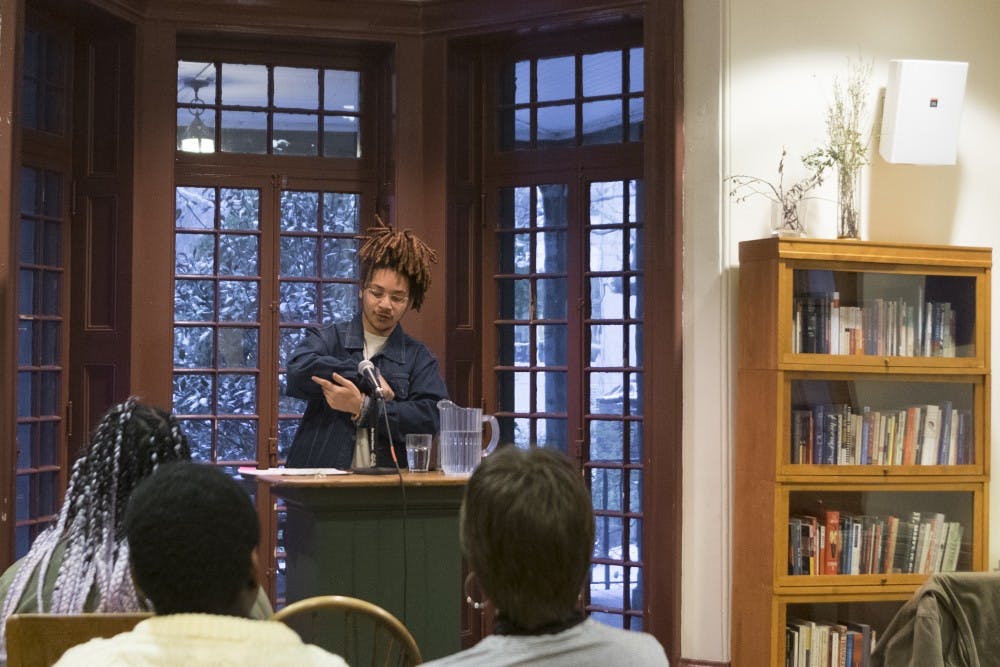Jazz plays over the Kelly Writers House stereo system, while a small crowd gathers waiting for slam poet Gabriel Ramirez. A group of students imitate popular slam poses. One girl stands with her palms upturned, “summoning the poem."
Imani Davis begins her introduction in the Arts Café, fondly recalling how she came to be friends with the first performer, Kassidi Jones, (C ‘18). As a member of the Excelano Project, Penn’s premier spoken word poetry group, Kassidi begins the night with a slam staple: a poem on something that bothers her. In this case, it’s the tendency to refer to black people as black bodies. Bodies implies being past, being an object, but Kassidi demands that she be understood as an individual—distinct, present, and alive.
The next performer, Gabriel Ramirez, is introduced not by focusing on his accolades and projects of which there are many. He was the 2012 Knicks Poetry Slam Champion and the 2013 National Poetry Youth Slam Champion, wrote, directed, and acted in an off broadway play, and has performed on Broadway. Rather, the introduction focused on the friendship and mentorship he has brought into Imani’s life. It is instantly possible to understand how the deeply personal bond would form. Even in speaking to the audience, Gabriel is honest, heartfelt, and achingly open.

He is dressed in his father’s old clothes. From the inside of his denim jacket, he draws out a pocket watch. One day, he will get it fixed. It is only a week since his father passed away—and for a while afterwards, his wardrobe will be made of only things he pulled from his dad’s closet.
Gabriel’s poetry is infused with his mourning. His first series of his poems are dedicated to his brother, John, who was diagnosed with schizophrenia. The image of people with this mental illness stigmatizes them; often they are viewed as violent. But Gabriel knows better. His brother John was deluded that he was Jesus. He blessed old women and used his touch to cure aching bones. Gabriel’s poem does not always deny John’s belief; in fact he often uses it as a metaphor, but he explores the conflict that a religious family goes through when encountering beliefs that could be blasphemous.
Towards the end, Gabriel shifts. He is working on finding personal happiness and engaging in self care and concludes by saying “As an educator, I want you guys to make a list, if possible, of at least ten things that make you happy.”
The event took place on March 20. If you missed it, you can find the recording on the Kelly Writers Facebook page.

